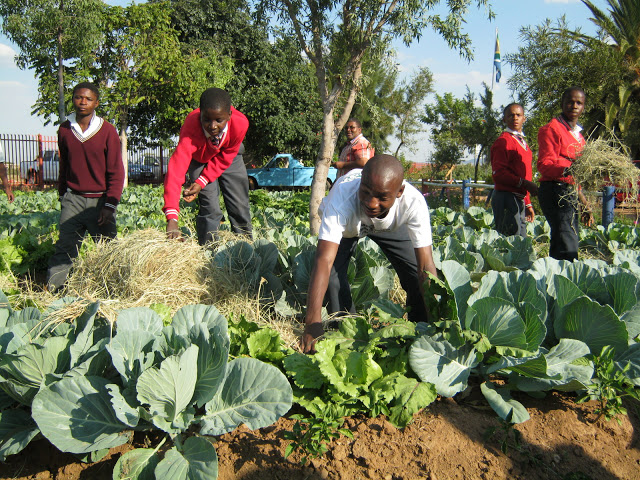The outset of the 2014 Year of African Agriculture offers a unique opportunity. Specific actions are needed around the following priorities to support and improve agriculture and food systems at the national and regional levels and throughout Africa:
Establish metrics to measure performance and achievements. A first step in advancing action is to agree on where we need to go and how to measure progress. Although some metrics for measuring progress are known, more information about what is driving the positive changes in agriculture and food systems in Africa is needed to provide baseline understanding, scale up the successes, and guard against unintended consequences. Metrics should enable mutual accountability among governments, farmers, the private sector, civil society, and donors.
Improve information and data availability and access. Another foundational element to affect change is good information. A big push is needed to get more and better data into the hands of decisionmakers at all levels. Better information can support fact-based management decisions, policies, and investments and strengthen monitoring and evaluation.
Amplify the voices of African leaders. Building on existing structures from CAADP (Comprehensive Africa Agriculture Development Program, an Africa-led initiative to boost agricultural productivity), and preparations for “Maputo 2,” African leaders have an opportunity beginning with the 2014 Year of African Agriculture, to create a galvanizing vision to reengage the agricultural sector and partners that are critical to supporting the positive transformations taking place. Specific policy recommendations may be developed in preparation for high-level events in conjunction with the Year of African Agriculture and Food Security, the 10th anniversary of CAADP, and other relevant and high-profile efforts.
Expand private sector engagement and investment. Many examples have been identified where private sector investment has generated significant benefits for smallholder farmers, rural communities, and local economic stability. Encouraging private sector investment was highlighted as an important action to help advance change. Commitment is needed at senior levels in government (e.g., to create an enabling environment) and within the private sector (e.g., to scale up successes) to develop new models for Africa and promote additional investment and growth among small, medium, and large businesses.
Engage Africa’s youth in agricultural entrepreneurship. There is both a great need for and a potential that could be realized from the engagement of youth and women in the agricultural sector. Agriculture offers a mechanism for building skills and accessing education and training opportunities for a generation of youth that is key to the future of Africa. To attract the younger generation, the agri-food sector needs to be redefined to reflect the promise it holds for developing business and mechanical skills as opposed to the work of manual laborers and subsistence farmers.
Promote regional and sub-regional cooperation. Engage national leaders, regional economic cooperation organizations, and other key players in policy discussions to address opportunities and challenges that span national boundaries. These discussions could address a range of issues particularly relevant to agri-food systems at a regional level.
The above is excerpted from Optimism for African Agriculture and Food Systems: Chairs’ Summary, High-Level Dialogue, “Harnessing Innovation for African Agriculture and Food Systems: Meeting the Challenges and Designing for the 21st Century.” Addis Ababa, Ethiopia, November 25-26, 2013.













